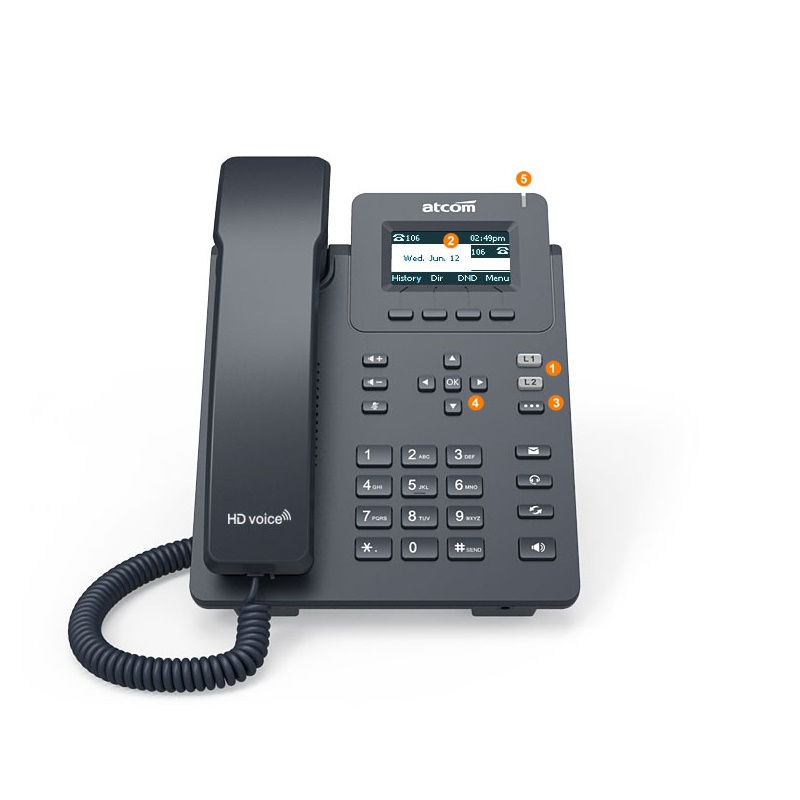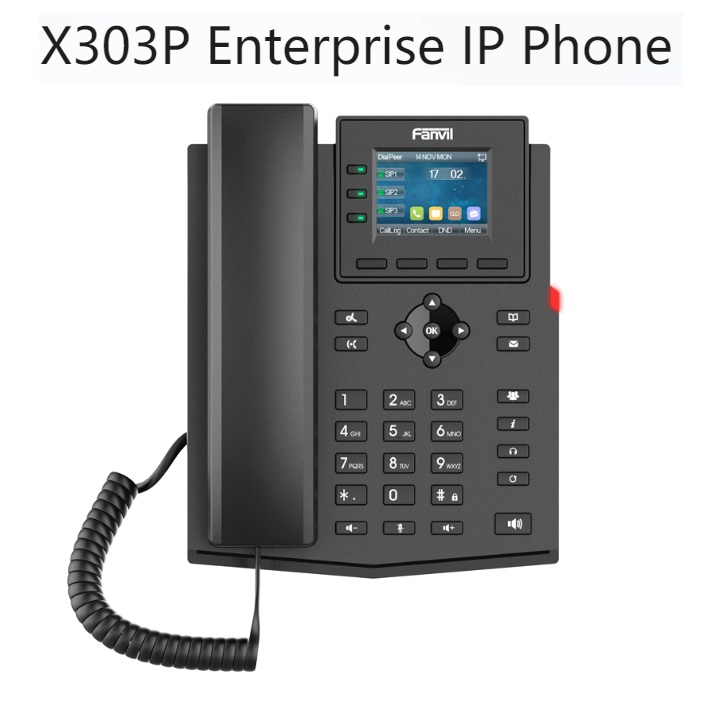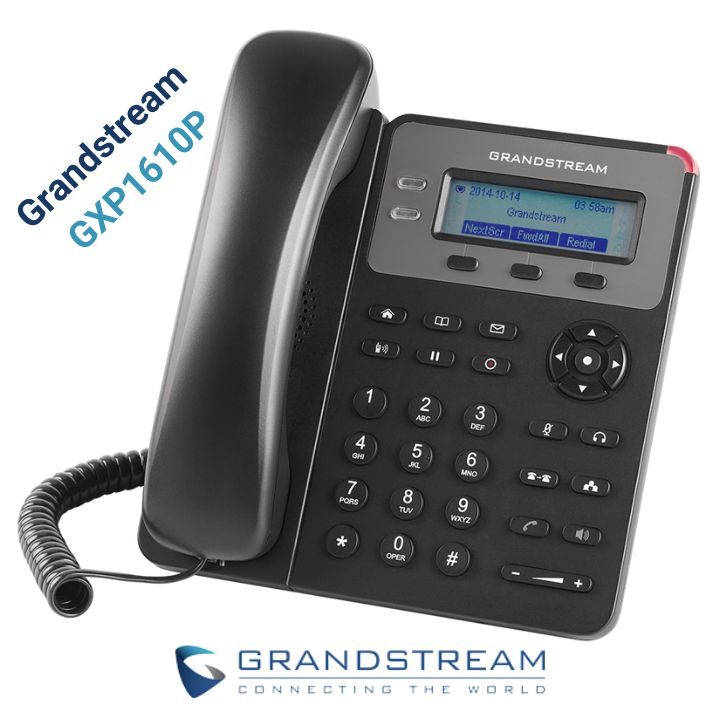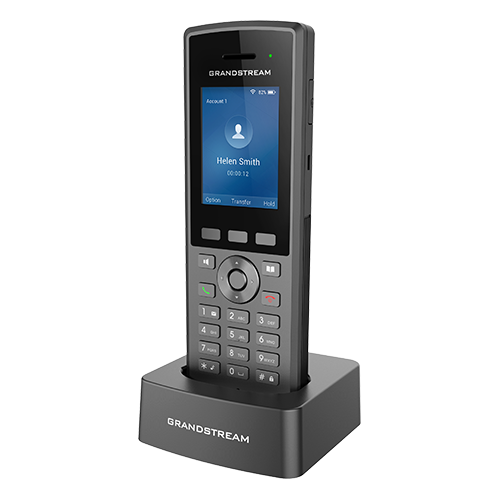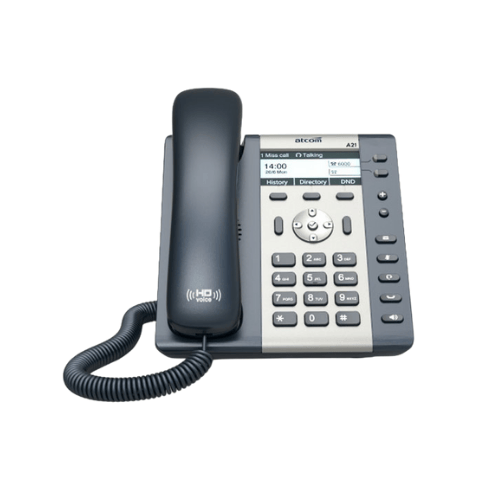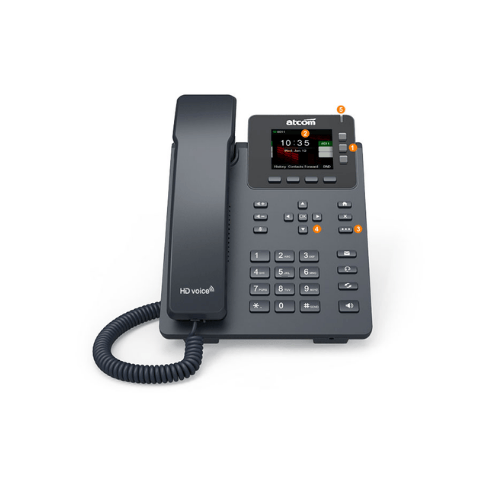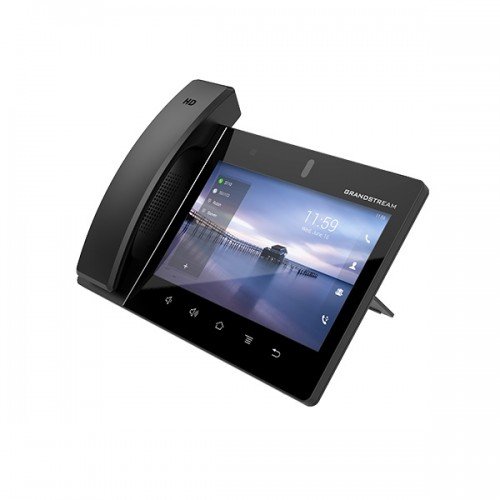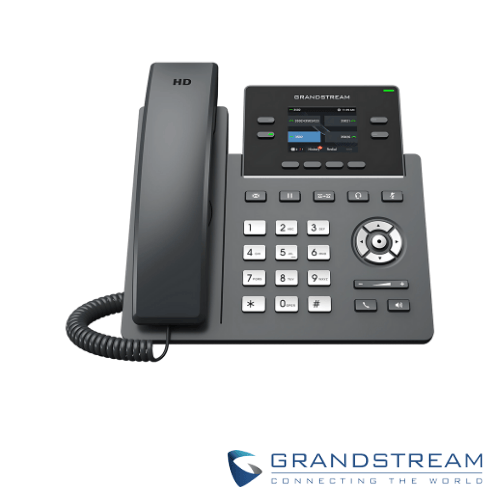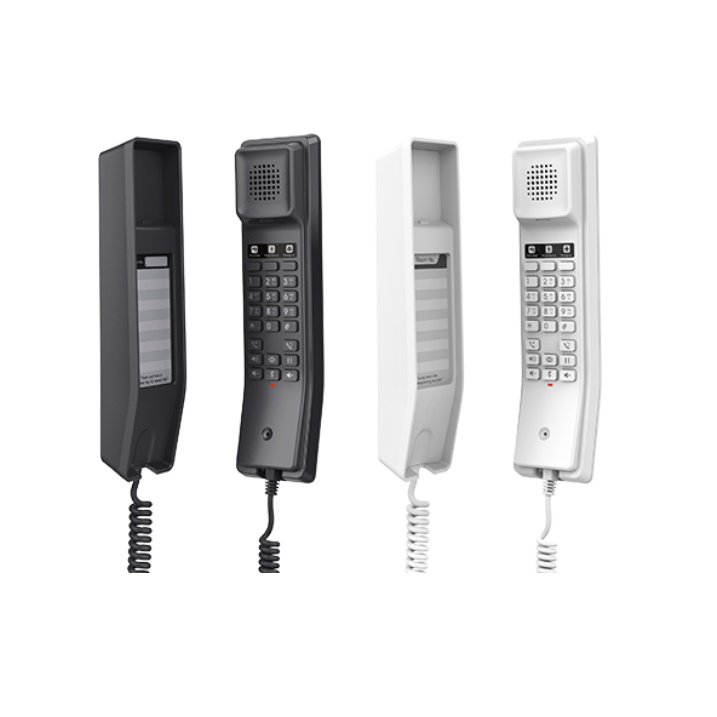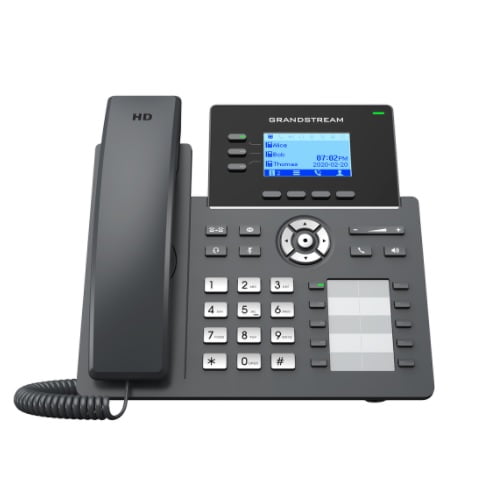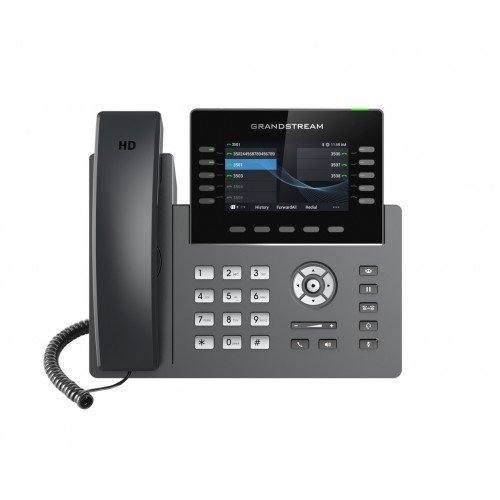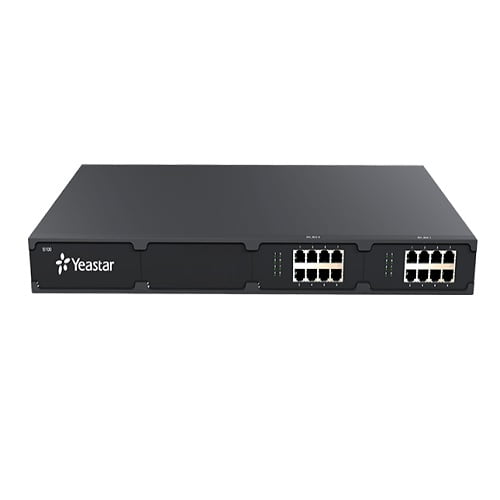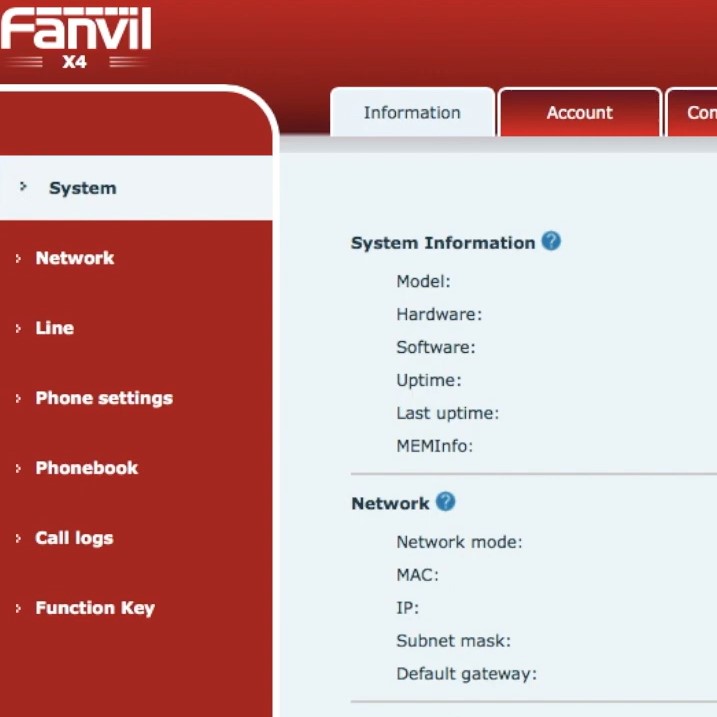
Grandstream GRP2602P
Origin USA
| SIP accounts | 4 |
|---|---|
| Conference | 5 way |
| PoE | Yes |
| Country of Technology | USA |
| Price | ৳ 5,050.00 |
Most Selling IP Phone.
Atcom D21
GRP2601P
Fanvil X303P
Color Display Regular 4 SIP Lines PoE IP Phone Set
2.4-inch 320x240 pixel color screen
Support audio codec G.722 and Opus, HD audio on speakerphone and handset
Support 6-party local conference
Support EHS wireless headset
Dual 10/100 Mbps ports, integrated PoE(only X303P)
Two installation methods of desktop stand and wall mountable.
Grandstream GXP1610P
- 1 SIP account, up to 2 call appearances
- TLS and SRTP security encryption technology to protect calls and accounts
- 3-way audio conferencing for easy conference calls
- Electronic Hook Switch (EHS) support for Plantronics headsets
- Automated provisioning options include TR-069 and XML config files
- Full-duplex speakerphone with HD audio to maximize audio quality and clarity
- Use with Grandstream’s UCM series of IP PBXs for Zero Config provisioning
- Built-in PoE 802.3af to power the device and give it a network connection (GXP1610P/PGXP1615 ony)
GRP2602P
- Model: GRP2602P
- Supports 4 SIP accounts & 2 Line Keys
- 5-Way Conferencing
- GRP2602P have integrated PoE
- 2*100M Network Interface
IP Phone Office Solution
A10W | Atcom Entry-level business Wifi IP Phone
GRP2601P
UCM6301 IP PBX
GXP2170
IP Phone New Product
Grandstream WP825 Cordless Wi-Fi IP Phone
৳ 25,500.00
Atcom A21
UCM6510 IP PBX
UCM6510 IP PBX provides leading edge voice, video, data, and mobility features to enterprises, small and medium businesses, retail and residential environments. This
enterprise-grade on premise IP PBX supports E1, T1 and J1 networks and offers scalability by supporting up to 2000
users.
-
- Supports up to 2000 users and 200 SIP trunk accounts, up to 200 concurrent calls and up to 64 conference attendees
- 1GHz quad-core Cortex A9 processor
- 1GB DDR3 Ram, 32GB Flash
- 1 Integrated T1/E1/J1 interface, 2PSTN trunk FXO ports, 2 analog telephone/Fax FXS ports with lifeline capability
- Gigabit network ports with Integrates PoE, USB, SD card, integrated NAT router
- Comprehensive security protection using SRTP, TLS and HTTPS with hardware encryption accelerator
- Quickly setup and provision Grandstream endpoints using the Auto-Discovery and Zero Config feature within the product’s web user interface
Atcom D32
৳ 4,800.00
GXV3380
৳ 47,000.00
GRP2612P
৳ 8,100.00
Grandstream GHP611W
UCM6208 | Grandstream 800 users IP PBX
GXV3370 | Grandstream Android IP Video Phone
GXP2170
GRP2615
IP PBX
UCM6302 IP PBX
UCM6301 IP PBX
S100 | Yeastar 100 User
#SIP Ext.: 100 by default ( max. 200)
#Concurrent call: 30 by default (max. 60)
#Expand Cards: max. 2 EX08/ EX30 & 1 D30
#Analog Ports: max. 16 FXS/FXO ports by modules
#BRI Ports: max. 16 BRI ports by modules
#GSM Ports: max. 6 GSM ports by modules
#E1/T1 Ports: max. 2 E1/T1 ports by modules
#Storage: SD Card / USB (not included)
#Modules Need to buy Separately.
S50 | Yeastar 50 User
IP Telephone
In today's growing digital AI world, businesses are constantly looking for cost-effective and efficient communication solutions. Tradit...
Ultimate Guide to IP Phones : Everything You Need to Know
In today's fast-paced digital world, staying connected is more important than ever. Whether running a business or looking for a reliabl...
How to Configure Fanvil IP Phone
Configuring a Fanvil IP phone may seem daunting at first, but with the right steps, it becomes a straightforward process. Fanvil IP pho...
